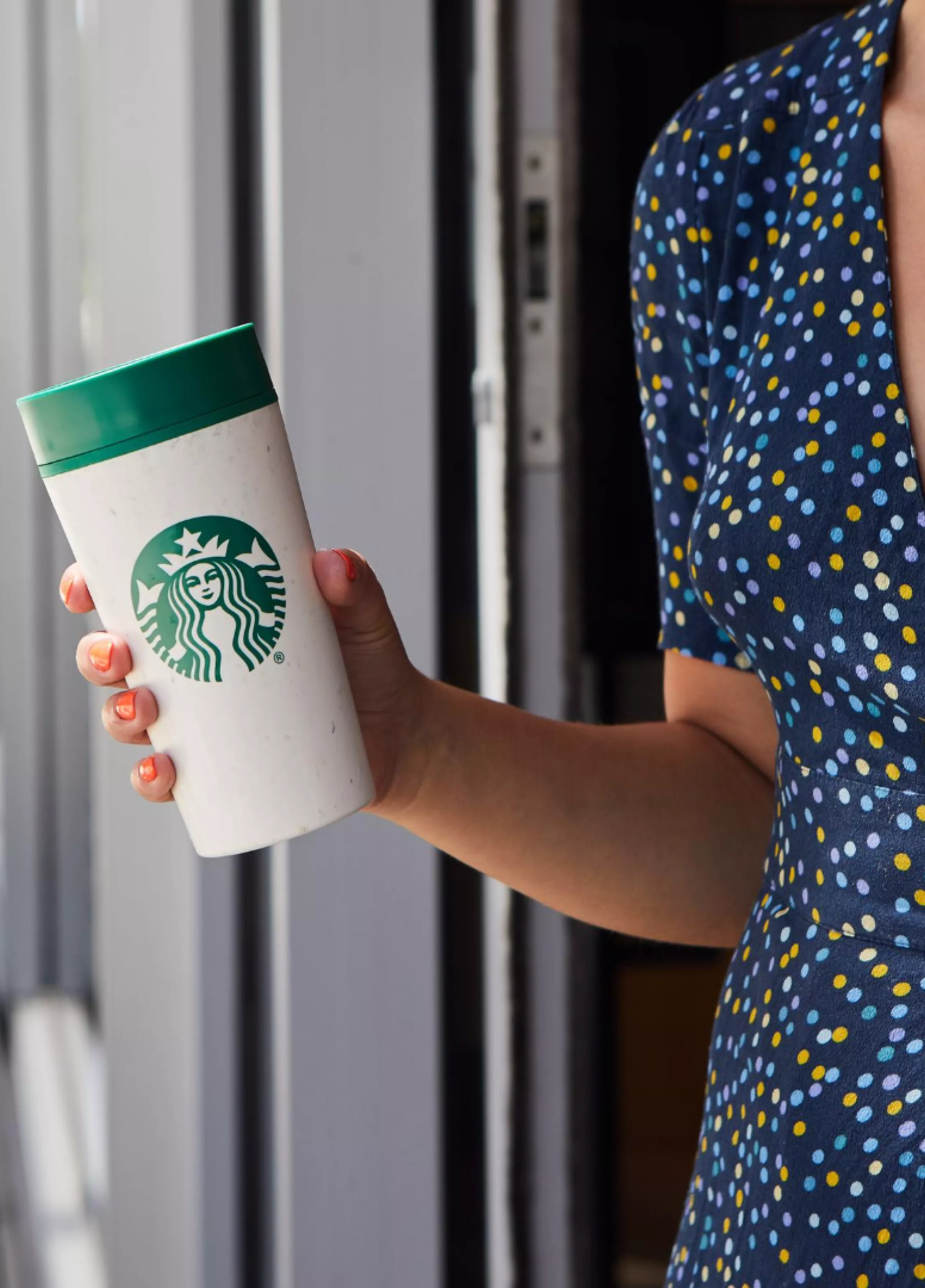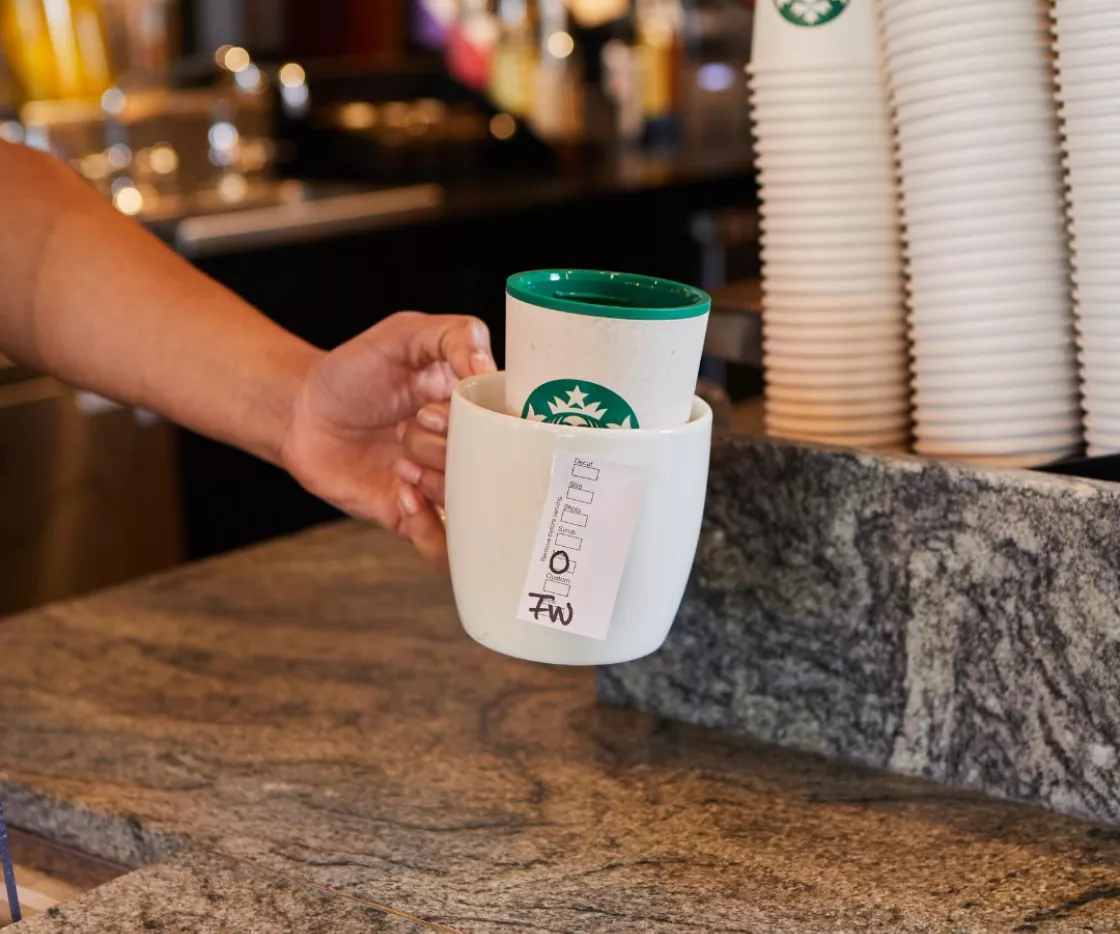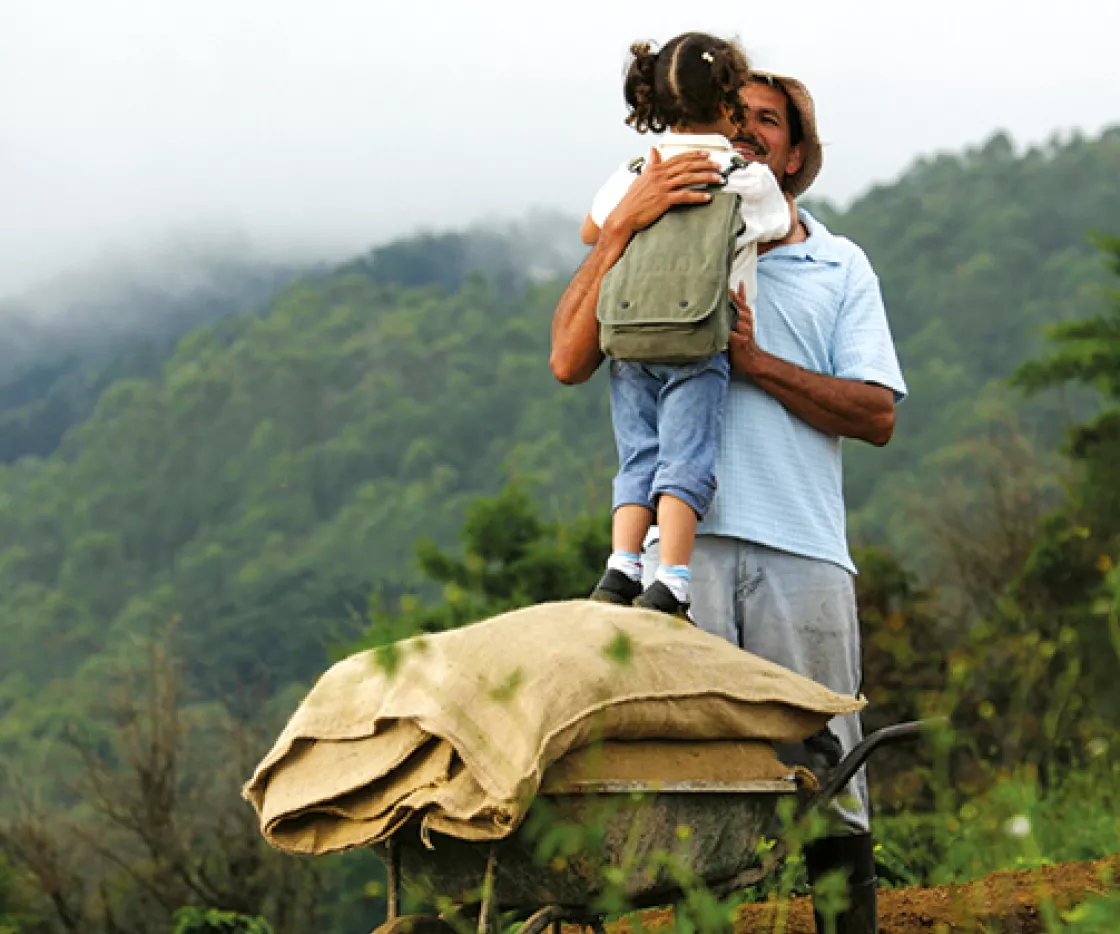
Reusable instead of disposable
Starbucks® Reusables

STARBUCKS® REUSABLES
Bringing about change together
At Starbucks, we think using reusable cups should become part of our daily routine. Whether we’re going to work, meeting friends, or just out and about, the reusable Starbucks cup should become our constant companion. Just like our phone, our wallet, or our house key.
Small change. Huge impact. Let’s tackle it – together.

Cup charge: Fee on disposable – discount on reusable
As part of our efforts to encourage our customers to use reusable options, a 10 centime fee will be charged on disposable hot beverage cups starting August 25, 2021.
Ever since the first Starbucks opened in the heart of Zurich 20 years ago, Starbucks in Switzerland has offered an 80-centime discount on handcrafted beverages to anyone who brings their own reusable cup.
Guests who forego a disposable cup thus save a total of 90 centimes, while also protecting the environment at the same time.
In all Starbucks Coffee Houses, you can also enjoy your drink in a porcelain cup at the store.

Fee proceeds donated to Donsol WWF project
100 percent of the proceeds of the cup charge will be given to WWF Switzerland to help the organization with various projects – including reducing plastic pollution in the environment.
A special focus will be placed on the Donsol – Plastic Smart City project. Donsol is a small coastal town in the Philippines. There, plastic pollution threatens marine life and biodiversity.
One of the goals is to rid the town of the enormous amounts of plastic waste by setting up on-site recycling companies.
Sustainability
Protecting the environment is vital to the future of coffee, coffee farmers and the world we live in. Starbucks is pursuing a number of sustainability commitments to help save our environment. Among other things, we want to reduce our waste by 50% by 2030.